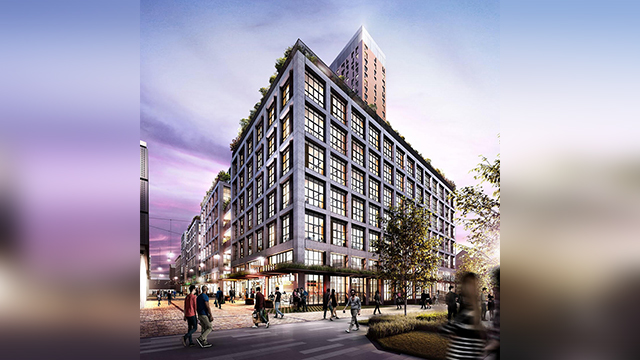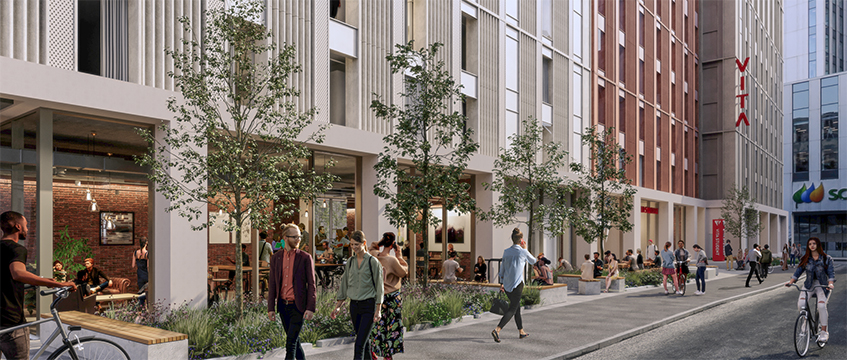A Budget for the towns and cities
Not since the advent of the Northern Powerhouse and Midlands Engine has there been such an intense focus on addressing the UK’s regional economic imbalances. After breaking through Labour’s red wall, there are high expectations of this new Tory government and its promises of ‘levelling up’ the economy.
Next week’s Budget is its litmus test.
Up to now, there’s rightly been a focus on the need for bold and transformative new infrastructure projects, such as HS2 and Northern Powerhouse Rail. And while we’ll still be hoping for more positive news on these, including a commitment that HS2 to Leeds is still part of the proposals, our regional cities need more than infrastructure if we’re to truly rebalance UK plc.
Not since the advent of the Northern Powerhouse and Midlands Engine has there been such an intense focus on addressing the UK’s regional economic imbalances. After breaking through Labour’s red wall, there are high expectations of this new Tory government and its promises of ‘levelling up’ the economy.
Next week’s Budget is its litmus test.
Up to now, there’s rightly been a focus on the need for bold and transformative new infrastructure projects, such as HS2 and Northern Powerhouse Rail. And while we’ll still be hoping for more positive news on these, including a commitment that HS2 to Leeds is still part of the proposals, our regional cities need more than infrastructure if we’re to truly rebalance UK plc.
My hope for this first budget is that our cities’ potential will be unleashed by new funding and policy measures that give them greater agency over their destinies and the resources they need to fulfil them. We need to see long-term and deep-rooted investment into regional infrastructure and institutions. And a recognition that the fortunes of towns and cities are critically connected so that there is real and sustained change, not just window dressing.
“All of this is a long-game and one Budget does not a summer make. But if it can lay the groundwork then it’s worth considering how significant this can be for our future”
Levelling up isn’t about fulfilling some British sense of fair play, nor parochialism. It’s no coincidence that alongside having one of the most centralised political systems in the OECD we have an economy that delivers disproportionately for London and the South East. These areas accounted for more than half of the UK’s jobs growth over the last decade, according to a recent IPPR report.
The effects of this imbalance and cuts to public services over the last decade has seen gains in UK life expectancy stall for the first sustained period in almost 120 years, with decreases in our most deprived areas and scandalous disparities between people in different parts of our cities.
We fully support the core cities group’s renewed calls for greater fiscal devolution that would allow combined authorities and boroughs to raise more money themselves to invest in local services. This could include things such as introducing a tourism tax, the ability to borrow against future revenue, and an overhaul of business rates and council tax to support ailing retailers. But the point here is that it is for local places and communities to decide.
As well as being able to keep more cash, there must be greater autonomy – and accountability – for metro mayors. The one great lesson of our time is that people feel disenfranchised and isolated from political decisions. To regain trust, democratic capitalism needs to give people a greater sense of ownership over the places where they live, their communities, and their futures.
It’s hard to imagine London without its mayor and this should become the same for our big regional cities. As we prepare for second term elections for our current crop of eight directly elected mayors, we want to see them being given more levers to pull. And we hope more important city regions, like Leeds, will secure the deals they need to get their first mayors.
At the same time, in transferring more power to the regions, our current centres of power in London must get closer to the regions. The long-mooted move of Whitehall departments outside of the capital needs to happen. I’ve worked there and it is a bubble in which the cities outside the capital are almost theoretical constructs rather than real places. Those making policy need to experience the reality of the regions in order to understand them.
Boost our cities and we boost our towns too. Where many of our major cities have shrugged off the effects of post-industrial decline, many of our towns are now suffering instead. Especially as high streets empty and local institutions and meeting places suffer from cuts and closures.
All of this is a long-game and one Budget does not a summer make. But if it can lay the groundwork then it’s worth considering how significant this can be for our future.
Cities and their connected towns are the places where things happen. They are the home to the ideas, talent and energy needed to drive innovation and entrepreneurship. We need this not just to raise the nation’s game economically but also if we’re to address the global challenges of time, like climate change and, in a world in which our cities continue to expand, wellbeing and quality of life, too.
Jessica Bowles is director of strategy at Bruntwood











